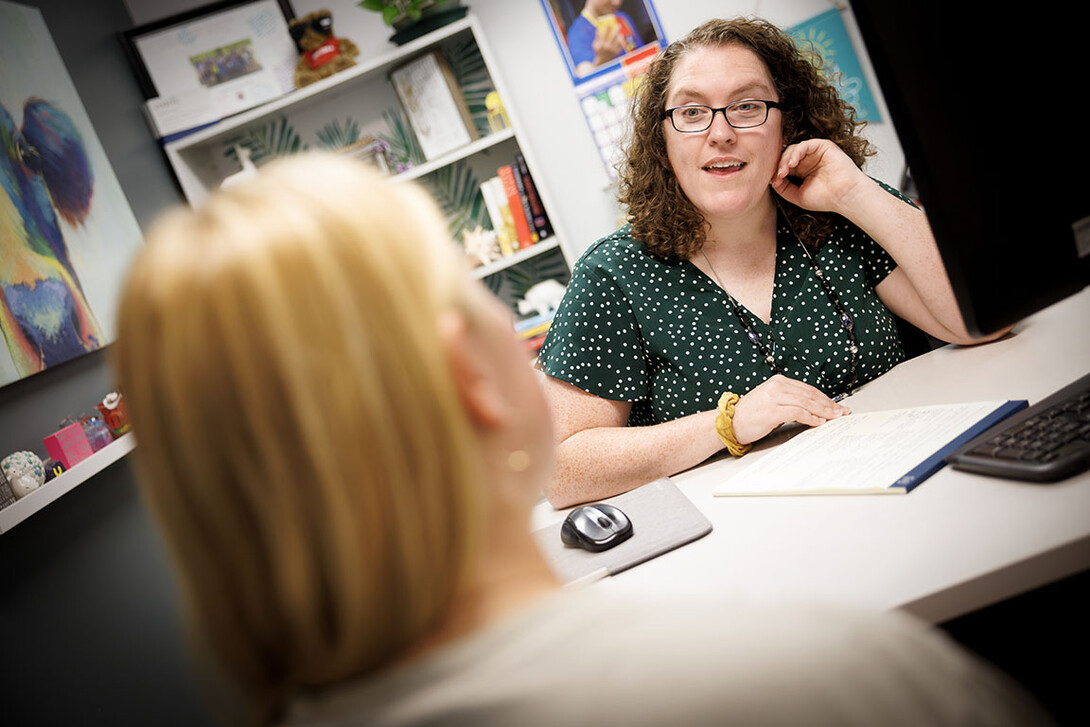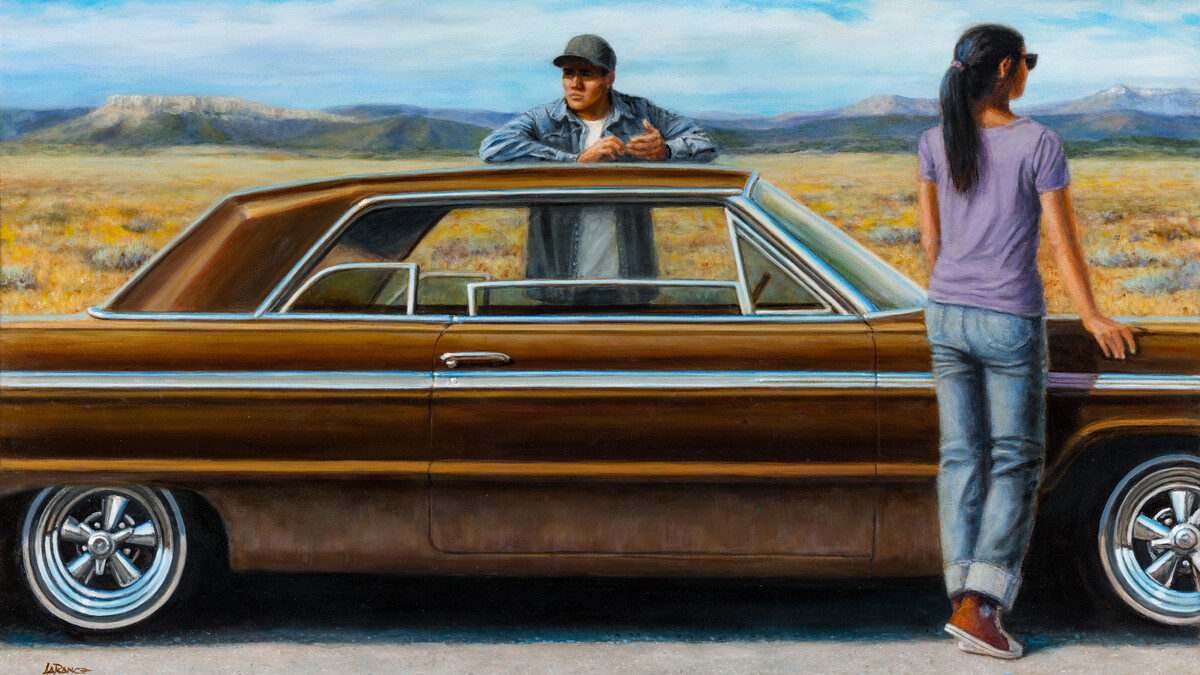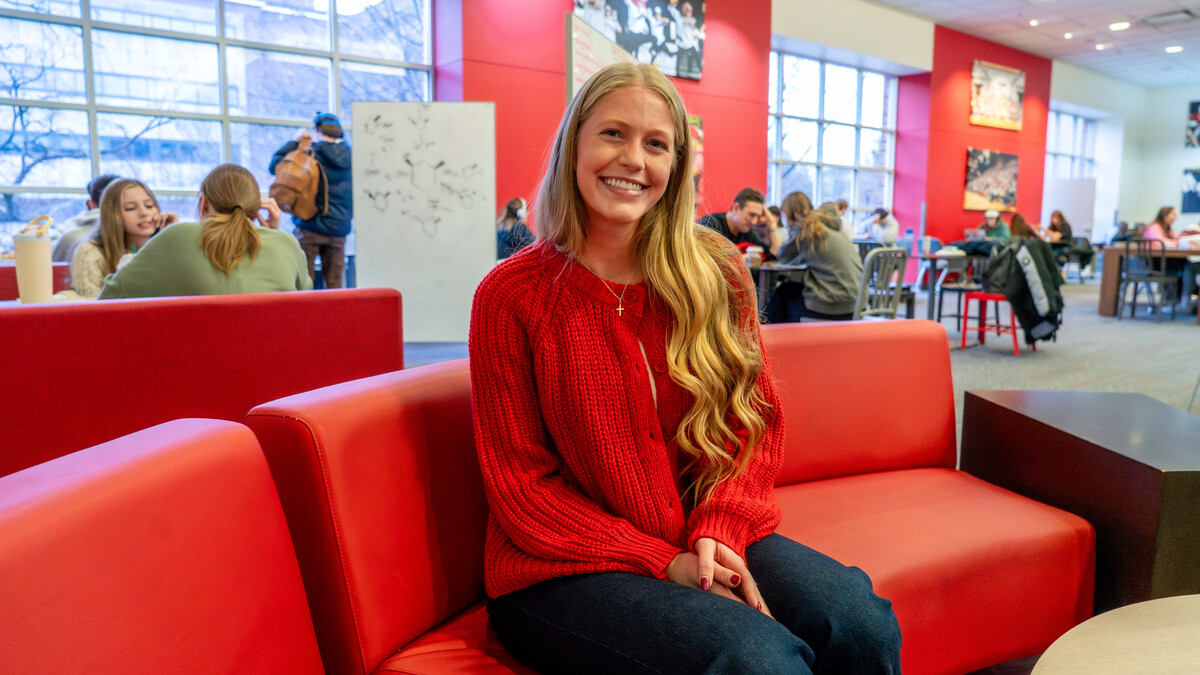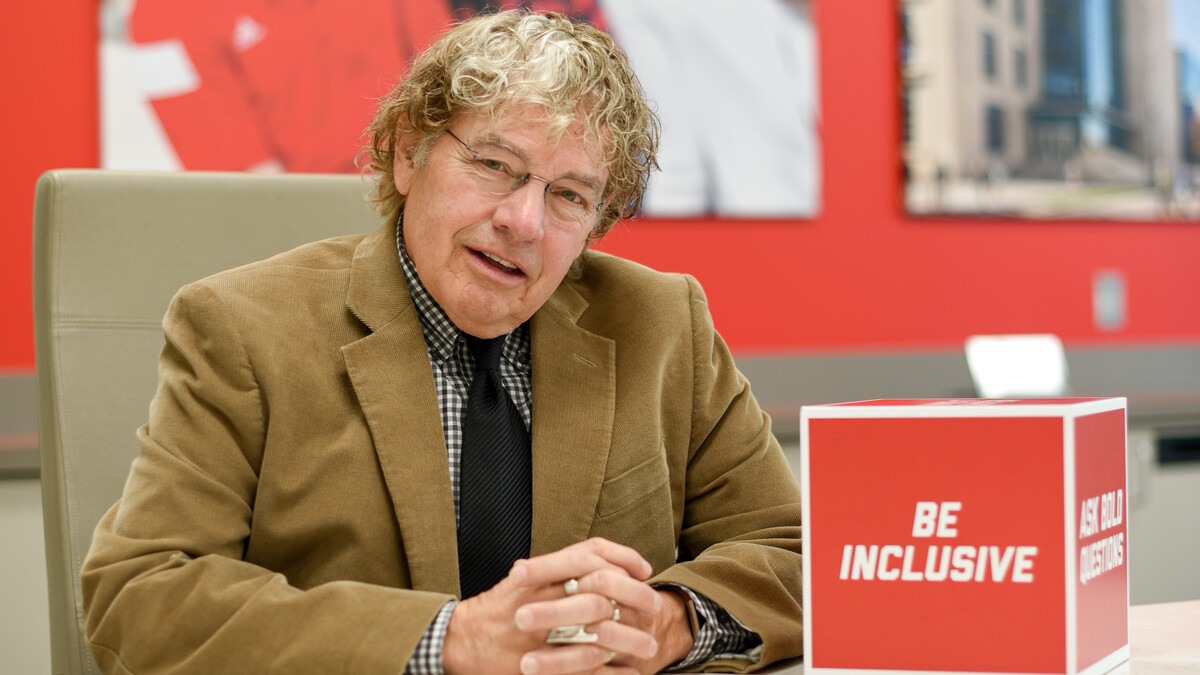
Meagan Savage, career coach and assistant director for career development for the University of Nebraska–Lincoln’s College of Arts and Sciences, wants to help students identify career possibilities and work toward their career goals. But she also wants them to know those might change during their time at Nebraska and beyond.
For those afraid they haven’t found their path yet or afraid to change their mind, Savage wants to reassure them they’re exactly where they need to be.
“I like helping them feel like they have made progress and they have a little bit more clarity, and being able to build a relationship with them where they’re able to be kind of vulnerable,” she said. “It’s hard to say, ‘I don’t know.’”
Career coaches are embedded in each college and some units, under the umbrella of Career Services. Career coaches give guidance and help each student explore and expand their potential.
Savage has been with the university for about nine years. She grew up mostly in the Denver area and studied English and magazine journalism at Drake University. She got a job traveling around the country to different campuses on behalf of Alpha Phi Omega, which she was in as a student. The position gave her an opportunity right out of college herself to show students what could come next for them.
“I found out I really liked working with college students,” she said. “I asked a bunch of folks I knew, ‘How do I do this forever?’”
The answer was graduate school. Her studies led her to academic advising, and she accepted a position at Nebraska, where she’s been working ever since.
Most of the work Savage does falls into helping students identify what they enjoy, what’s important to them, and what they’re good at, so they can then plan how to capitalize on that information moving forward. She might work with students on resume review as they apply for student jobs on campus, or for their first job out of school. Some students need advice about graduate school applications.
Emily Wilber, interim director of Career Services, said Savage excels at catering her advice to each student.
“Meagan not only cares deeply about students, she understands and appreciates their uniqueness,” Wilber said. “She doesn’t assume one size fits all when it comes to anything related to student or career development. This is especially relevant in the College of Arts and Sciences where the diversity of interests is so great, and Meagan celebrates that diversity.”
Some of the most rewarding times for Savage are when she meets with students for what she calls exploratory conversations, when students are trying to figure out what their next steps are. A freshman who was very confident in their choice of major might feel differently by their junior or senior year, she said. One of the reasons she enjoys assisting with this exploration so much is because of her own experience.
While in college, Savage had an internship at a magazine, directly connected to her chosen major, and found it wasn’t actually what she wanted. She said those feelings caused a kind of identity crisis.
“I had told everyone my whole life that I was going to go on and be a writer; I went to college to become a writer. I finally got the fun, competitive, amazing internship, and I hated it,” she said. “So much of my identity was wrapped up in being a journalism major and going on to be a journalist, and if that’s not what I wanted anymore, what did that mean for who I was?”
Students experience these feelings all the time, Savage said, and she wants them to know that it’s never too late to change course and find a better fit. Savage said she’s honest with students about the detours she took on her own path and tries to remind them people’s plans for their futures are always changing.
“Your career path is going to be full of twists and turns,” she said. “We play this kind of silly game of, ‘What did you want to be when you were really little?’ And we talk about why they didn’t want to do that anymore. I try to really demonstrate they are not alone in this place where they’re questioning what comes next. In fact, they are in the overwhelming majority, because very few people have a linear career path.”
For students in this position, Savage talks to students about what they like, discusses their previous experience with them and what they did or didn’t like, or connects them with alumni working in a job the student is interested in so the student can ask questions.
“If that student is willing to just sit down with them and pick their brain about their career path and their day-to-day work, it’s extremely helpful for students,” she said.
Some visitors to Savage’s office need help figuring out what their options are. They need help accessing resources that might set them on the right path. Others have so many things they’re interested in exploring, Savage has to help them narrow down what they actually want to do. Savage thinks both sides of this situation are valuable.
“Sometimes it’s about crossing things off the list,” she said.
Savage said she enjoys getting to know the students. Their needs might differ depending on their backgrounds or their fields.
“Our first-generation students, they needed some support and help with the undergraduate process, and now the graduate process is vastly different,” she said.
Savage has been surprised that she hears one thing more than almost anything else. Whether they’re studying English or math, psychology or physics, many of those she meets with express a similar goal.
“We have 30 majors in our college and I’ve heard ‘I want to help people’ from all of them,” she said. “That’s really great, but who is that you want to help? What kind of problems do you want to help them solve? Those are the two big guiding questions.”
Savage said because degrees are so well-rounded in the College of Arts and Sciences, it’s fun to communicate to them that their professional opportunities can be endless.
“Their degrees are so broad there are countless options,” she said. “The opportunities are so vast that helping students narrow their focus is really valuable.”







